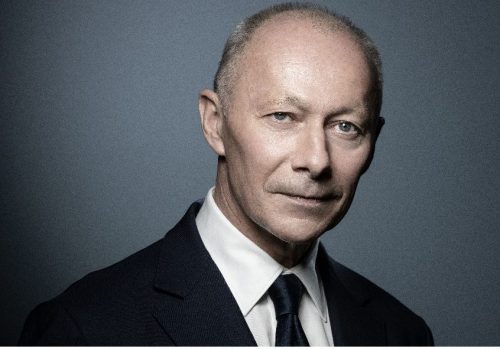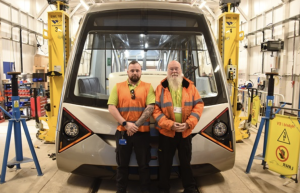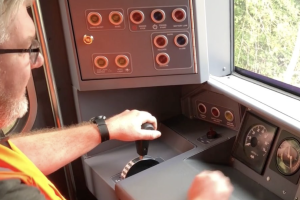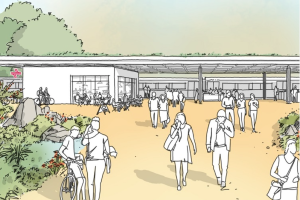Computer chips shortage drives JLR to £110m first quarter loss

An ongoing shortage of computer chips has driven luxury car maker Jaguar Land Rover into the red – and it warned the situation will deteriorate during the second quarter.
It recorded a first quarter pre-tax loss of £110m, with chief financial officer, Adrian Mardell, saying: “We are encouraged by the continuing recovery in sales and the very strong demand for our products with record order books. However, the global shortage of semiconductors continues to be a challenge which has constrained our financial results in the first quarter.”
The group, which has manufacturing plants at Halewood, Merseyside, and Castle Bromwich and Solihull in the West Midlands, released figures for its first quarter period to June 30.
It revealed that revenue was £5bn in the three months, 73.7% higher than the same quarter in the prior year reflecting a 72.6% year-on-year growth in wholesales to 84,442 vehicles.
But it said this was approximately 30,000 units lower than planned due to semiconductor supply constraints, and that the production constraint resulted in a pre-tax loss of £110m, with an EBIT margin of (0.9)% and a free cash outflow of £996m.
The free cash outflow was after £571m of investment spending and unfavourable working capital of £922m related to the lower production.
Nevertheless, these results represent a significant improvement from the loss of £413m and free cash outflow of £1.6bn at the peak of the pandemic in the first quarter a year ago.
The car maker ended the quarter with total cash and short-term investments of £3.7bn, resulting in total liquidity of £5.7bn, including a £1.9bn undrawn revolving credit facility.
The company has further bolstered liquidity in July with the issuance of €500m 4.5% seven-year and $500m 5.5% eight-year bonds, as well as the addition of £80m to its existing revolving credit facility – now £2.015bn – maturing July 2022 and £190m added to the revolving credit facility extension – now £1.5bn – maturing March 2024.
JLR said the shortage of semiconductors is presently “very dynamic and difficult to forecast”.
Based on recent input from suppliers, it now expects chip supply shortages in its second quarter, ended September 30, 2021 to be greater than in the first quarter, potentially resulting in wholesale volumes about 50% lower than planned, although the group said it is continuing to work to mitigate this.
It expects the situation will start to improve in the second half of its financial year. However, the broader underlying structural capacity issues will only be resolved as supplier investment in new capacities comes online over the next 12-18 months and so, JLR expects some level of shortages will continue through to the end of the year and beyond.
While the present supply constraints continue, JLR said it will continue to prioritise production of higher margin vehicles for the chip supply available, as well as make chip and product specification changes where possible to reduce the impact.
In this scenario, JLR expects a negative EBIT margin with a free cash outflow of less than £1bn in the second quarter.
As semiconductor supply improves, JLR expects to achieve a positive EBIT margin and positive free cash flow in the second half of the financial year.
Its medium and longer term financial targets under its ‘Reimagine’ strategy, underpinned by the ‘Refocus’ transformation programme, remain unchanged, including double digit EBIT margins by fiscal year 2026.
Encouragingly, JLR continues to see strong demand for its products for when semiconductor supply ultimately improves.
The company presently has about 110,000 global retail orders, the highest in its history, representing three months of sales cover, with five months in Europe and four months in the UK. Orders for the Defender, alone, total more than 29,000, representing in excess of four months of demand.
Chief executive Thierry Bolloré said: “We are pleased to see a continuing positive recovery from the pandemic, with year-on-year growth in all regions, demonstrating the appeal of Jaguar and Land Rover vehicles.
“Though the current environment continues to remain challenging, we will continue to adapt and manage elements that are within our control and ensure that Jaguar Land Rover is well placed to respond to any further market developments.”
He added: “We remain encouraged by the sheer strength of the demand for our vehicles, and note the success of our electrified powertrain offering as we work to drive that demand further by reimagining our iconic British brands for a future of modern luxury by design. We have the right vision with Reimagine, and we are already on the journey.”








